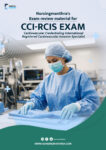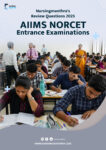1. A psychologist evaluates a community program by comparing its outcomes to its intended goals. This process is known as:
A. Program implementation
B. Needs assessment
C. Program evaluation
D. Resource mobilization
Answer: C. Program evaluation
Rationale: Program evaluation assesses a program’s effectiveness by comparing actual results to intended goals.
2. When a research participant alters behavior because they are being observed, it’s called:
A. Placebo effect
B. Hawthorne effect
C. Observer bias
D. Double-blind effect
Answer: B. Hawthorne effect
Rationale: The Hawthorne effect occurs when people change behavior due to awareness of observation.
3. “Mean,” “median,” and “mode” are examples of:
A. Central tendency
B. Variability
C. Correlation
D. Statistical significance
Answer: A. Central tendency
Rationale: These are statistical measures used to describe the central point of a data set.
4. Best outcome measure for youth mentorship program is:
A. Number of mentors signed up
B. Change in school attendance, grades, and self-esteem
C. Total budget spent
D. Parent feedback
Answer: B. Change in school attendance, grades, and self-esteem
Rationale: These are direct indicators of program impact on youth outcomes.
5. A psychologist’s letter for a disability application should:
A. Be handwritten and informal
B. Include diagnosis, impairments, and prognosis
C. Be exaggerated
D. Include their resume
Answer: B. Include diagnosis, impairments, and prognosis
Rationale: Letters must be professional and based on clinical evidence.
6. Upon hearing a teen uses cannabis, a psychologist should first:
A. Call police
B. Conduct a non-judgmental assessment
C. Terminate therapy
D. Ignore it
Answer: B. Conduct a non-judgmental assessment
Rationale: Understanding context is crucial before planning intervention.
7. A strength-based case management approach focuses on:
A. Client’s deficits
B. Listing client mistakes
C. Existing client strengths and support
D. Telling client they are weak
Answer: C. Existing client strengths and support
Rationale: This empowers the client and builds on their abilities.
8. If a client stops therapy unexpectedly, the psychologist should:
A. Close the file
B. Contact the client to discuss discontinuation
C. Send a bill
D. Assume recovery
Answer: B. Contact the client to discuss discontinuation
Rationale: Ethical responsibility includes following up on client care.
9. The goal of crisis negotiation is to:
A. Use force
B. De-escalate and resolve peacefully
C. Agree to demands
D. Trick the individual
Answer: B. De-escalate and resolve peacefully
Rationale: Crisis negotiation uses communication to prevent harm.
10. CBT for insomnia includes:
A. Dream analysis
B. Long-term sleeping pills
C. Sleep hygiene and thought reframing
D. Coffee before bed
Answer: C. Sleep hygiene and thought reframing
Rationale: CBT-I addresses both behavioral and cognitive causes of insomnia.
11. Universal Precautions in mental health mean:
A. Assume all clients are dangerous
B. Apply trauma-informed care to all
C. Wear masks during therapy
D. Use the same technique for all
Answer: B. Apply trauma-informed care to all
Rationale: Universal trauma-informed care ensures safety and trust for all clients.
12. In custody cases, the psychologist’s report must be:
A. Biased to paying parent
B. Focused on child’s best interests
C. Based on personal opinion
D. Full of jargon
Answer: B. Focused on child’s best interests
Rationale: The child’s welfare is the guiding principle in court evaluations.
13. To prevent professional burnout, psychologists should:
A. Overwork
B. Avoid colleagues
C. Practice self-care and set boundaries
D. Focus on trauma only
Answer: C. Practice self-care and set boundaries
Rationale: These strategies support long-term wellness and job performance.
14. Secondary prevention aims to:
A. Stop problems before they start
B. Treat chronic issues
C. Intervene early to reduce severity
D. Enforce new laws
Answer: C. Intervene early to reduce severity
Rationale: Early intervention helps prevent worsening of conditions.
15. A client from a high power distance culture may:
A. Treat therapist as equal
B. Expect directive advice
C. Prefer group therapy
D. Reject psychology
Answer: B. Expect directive advice
Rationale: In high power distance cultures, authority is respected and rarely questioned.
If you would like access to more questions for the CDA psychologist written exam questions, you can purchase the complete study material using the link provided below. For any assistance or to request the material, please contact Nursing Manthra via WhatsApp.” +971502515717





















